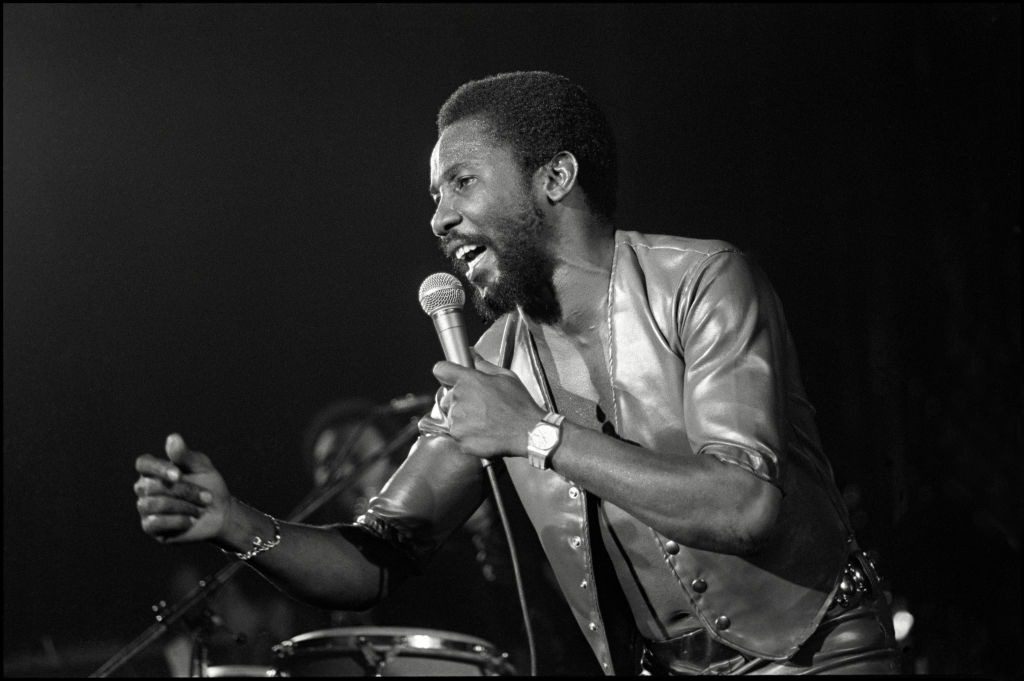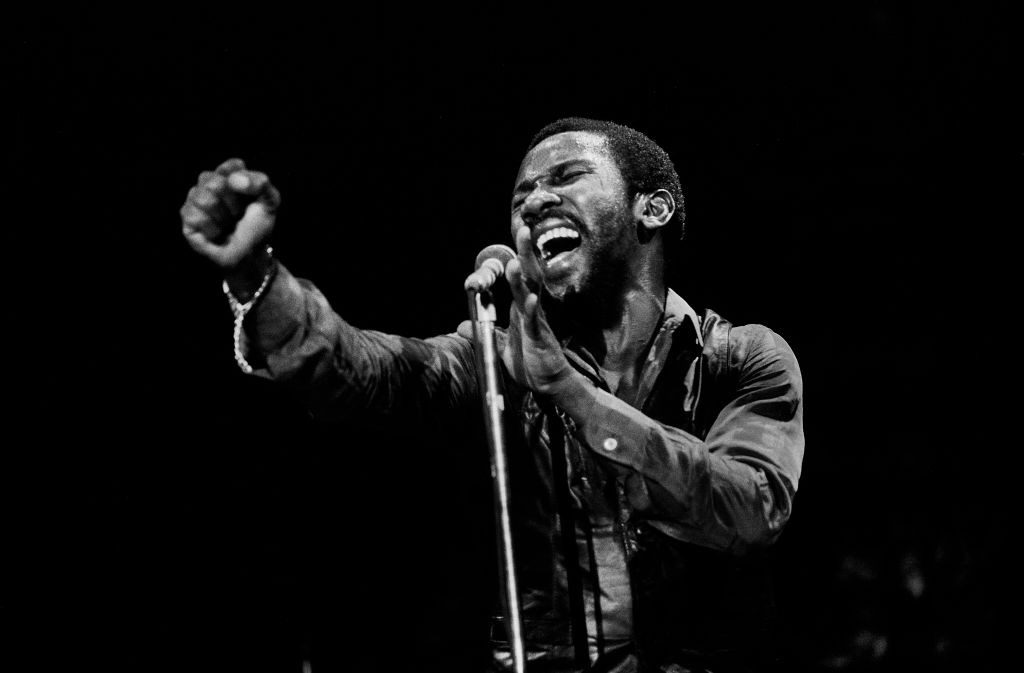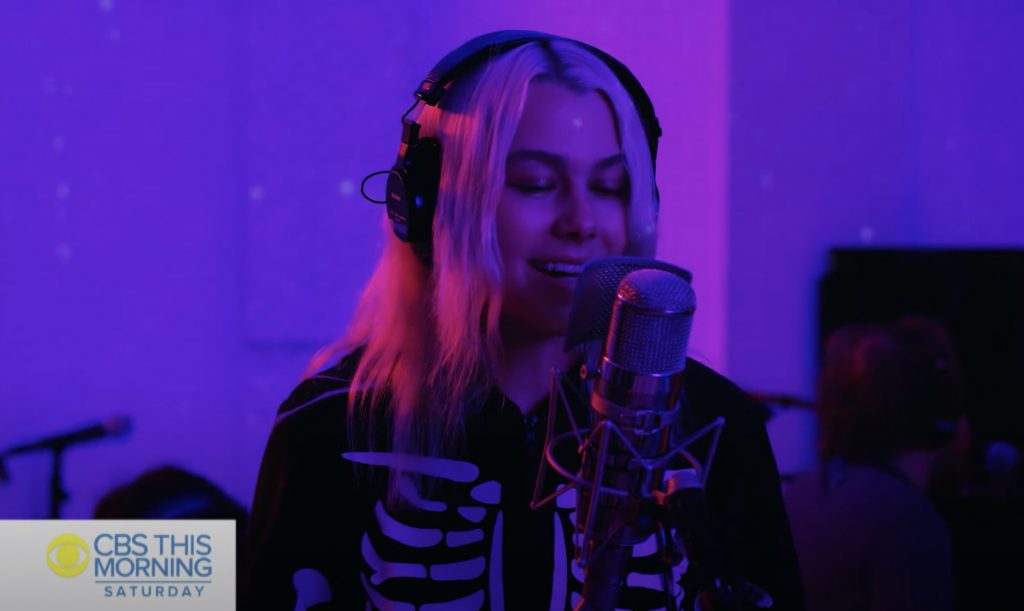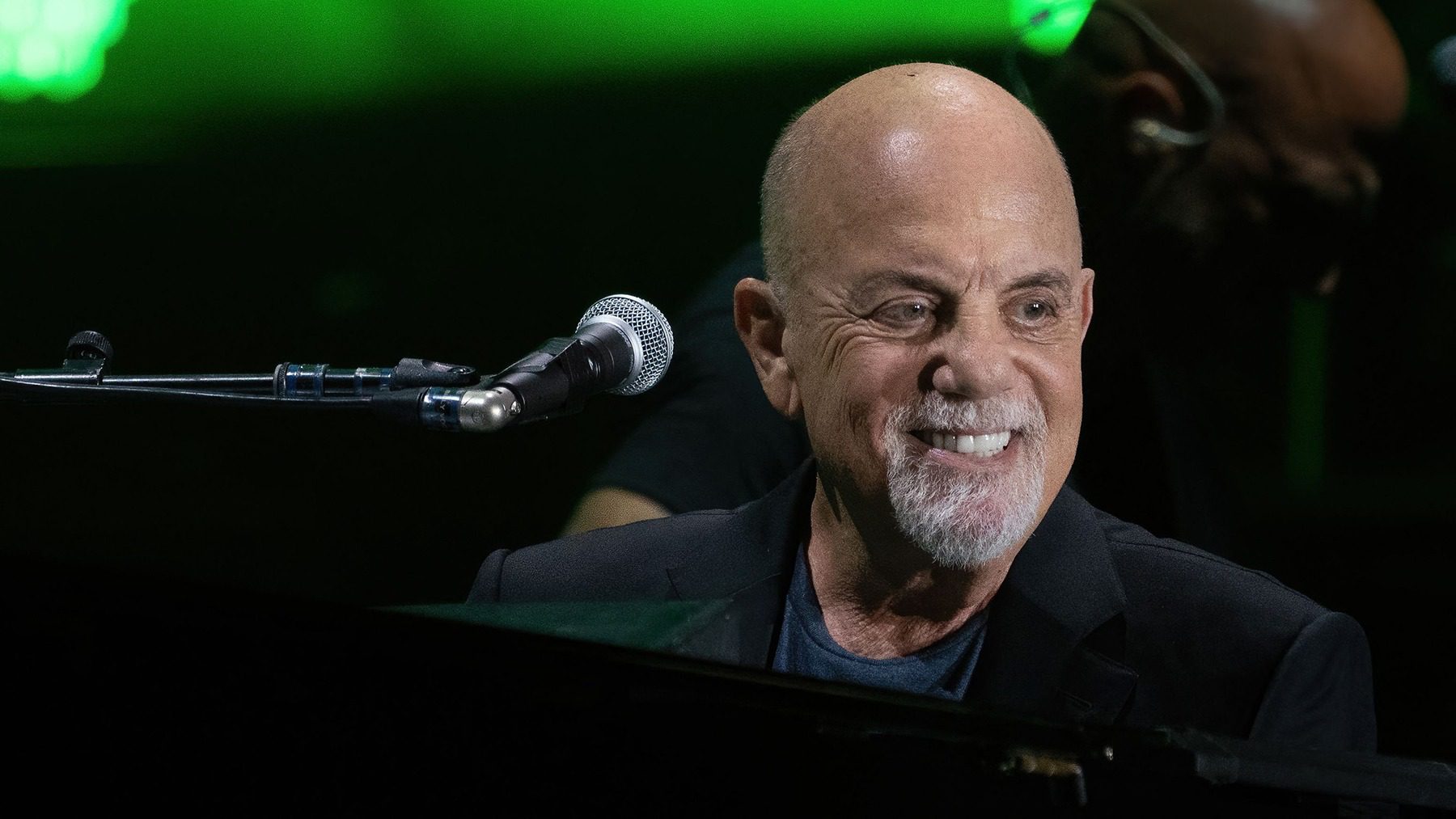
Toots and the Maytals: 15 Essential Songs
Frederick “Toots” Hibbert, who died Friday at age 77, wasn’t just a pioneer and key popularizer of Jamaican music; he was also an essential bridge between the worlds of ska, rocksteady, reggae, and the great American R&B tradition. His vocal delivery, raspy yet gorgeously supple, and poignant way of writing — “I realized it’s like you’re writing a letter to a girl; it’s got to sound like you mean it!” he told IndieLand recently of his craft — placed him firmly in the tradition of legends like Ray Charles and Sam Cooke, and contemporaries like Otis Redding. “As a singer, he’s amazing,” friend and collaborator Keith Richards told RS recently of Hibbert. Here are 15 songs that chart Hibbert’s remarkable six-decade journey with his signature group, the Maytals, and beyond.
“I’ll Never Grow Old” (1964)
While the Maytals’ 1968 track “Do the Reggay” is credited with coining the word “reggae,” Jimmy Cliff considered the band’s Coxsone Dodd–produced 1964 LP Never Grow Old as the actual birth of the genre. “[Toots] had such a great impact on the ska scene, and that was the beginning of the [reggae] music,” Cliff told IndieLand in 2019 of Never Grow Old. Cliff also praised the album’s “I’ll Never Grow Old,” a ska blast showcasing the Maytals’ overlapping and diverging harmonies. “I love that song, and I love the whole album,” Cliff said.
“Bam Bam” (1966)
blogherads.adq.push(function () {
blogherads
.defineSlot( ‘medrec’, ‘gpt-dsk-tab-article-inbody1-uid0’ )
.setTargeting( ‘pos’, [“mid-article”,”mid”,”in-article1″,”mid-article1″] )
.setSubAdUnitPath(“music//article//inbody1”)
.addSize([[300,250],[620,350],[2,2],[3,3],[2,4],[4,2]])
;
});
In 1966, the Maytals won the first Jamaican Independence Festival Popular Song Competition (which they won again in 1969 and 1972) with Toots’ breakthrough song, “Bam Bam.” The song, later reprised as a massive hit by Sister Nancy, is a thrilling statement of moral clarity and purpose, a huge step from the Motown-influenced love songs and dance-floor instrumentals most ska and rock-steady artists were writing at the time: “I want you to know that I am the man/Who fight for the right, not for the wrong/Going there, I’m growing there/Helping the weak against the strong/Soon you will find out the man/I’m supposed to be.”
“54-46 Was My Number” (1968)
Jamaica’s reggae musicians had yet to score many major hits outside their home country when Toots and the Maytals got there with this stirring cry of outrage against the criminal justice system. Listening to it now, you can hear why it became a defining early anthem of the genre. Hibbert’s vocal presence is volcanic, channeling James Brown when he runs the band through its paces (“Give it to me one time! Give it to me two times! Give it to me three times!”) and a righteousness all his own as he protests his innocence on a marijuana charge that really did land him behind bars at a crucial time in his developing career. “I was angry,” he said in his final IndieLand interview, insisting that he’d been framed. “I’m angry still.”
“Sweet and Dandy” (1968)
Toots and the Maytals’ saccharine tale about a young couple throwing a wedding on a £1 budget became one of the group’s signature songs, a hit in Jamaica and abroad and a tune featured in 1972’s The Harder They Come, which showed Toots and the Maytals performing the track in the studio. “Everybody dressed up in white, coming in thinking it was a big wedding,” Hibbert said in an interview. “When they came they realized that it’s just £1.10 for the wedding cake — it’s a little thing and a few bottles of cola wine. So it became ‘no wonder it’s a perfect ponder but everybody was still dancing — sweet and dandy.’”
“Monkey Man” (1969)
One of Toots’ most popular and enduring songs finds the singer falling in love with a girl and losing her to another man. “A monkey-looking man took her away from me but I thought she was in love with me,” Toots told Outline magazine. “The guy was ugly and not good looking like me, ha ha!” The Specials, Amy Winehouse, and countless others have covered the exuberant song. Losing a girl has never sounded more fun.
“Pressure Drop” (1969)
Immortalized on the soundtrack of The Harder They Come, although it was cut a few years before, one of Toots’ most prominent songs may be the slyest reggae track ever. With its warm harmonies and choppy-waves rhythm section, “Pressure Drop” has a soothing island sway about it. In fact, it’s a revenge song: Toots once said that when a record company “didn’t give me no money” after he’d done some work for them, he wrote the song: “Pressure’s gonna drop on you,” he said, explaining why he used that phrase. The song also refers to the way severe weather changes in Jamaica are tracked by barometric pressure. Only Toots could make a warning sound so genial.
“Funky Kingston” (1972)
“Music is what I’ve got to give,” Toots roars at the beginning of “Funky Kingston,” ripping up James Brown funk and claiming it for Jamaica. The track is his ferocious anthem about reggae taking on the whole world. Like so much of his work, the song grabs hold of American music inspired by Caribbean polyrhythms in the name of the African diaspora. In “Funky Kingston,” he takes his proudly country voice to the big city, but he doesn’t stop there. “I love black America,” Toots yells. “People keep asking me for ‘Funky Kingston’/But I ain’t got none/Someone take it away from me!” Under the rock-steady piano and guitar, it’s pure rage.
“Louie Louie” (1972)
There are several million versions of “Louie Louie” out there — but it’s safe to say that Toots makes the song his own. He seizes the garage-band rock & roll classic and brings it all back home, to the Caribbean grooves where it all started, turning it into a festive reggae chant. “Louie Louie” came out of Los Angeles — the result of professional hitmaker Richard Berry responding to New Orleans R&B. But the Maytals make it sound raw and rootsy. And it passes the toughest test of any “Louie Louie” remake — it rocks hard.
blogherads.adq.push(function () {
blogherads
.defineSlot( ‘medrec’, ‘gpt-dsk-tab-article-inbody2-uid1’ )
.setTargeting( ‘pos’, [“mid-article2″,”mid”,”in-article2″,”mid-article”] )
.setSubAdUnitPath(“music//article//inbody2”)
.addSize([[300,250],[300,251],[620,350],[2,4],[4,2]])
;
});
“Country Road” (1973)
Toots’ rendition of the wistful John Denver hit “Take Me Home, Country Roads” was one of a couple of crossover-aimed covers on the U.S. version of Funky Kingston. On paper, the idea sounded like a head-scratcher, given how all-American Denver’s lyrics and whole-milk delivery were. But starting with an intro that sounds right out of church, Toots’ makeover is a sultry revelation. He makes the song his own — not merely by changing “West Virginia” to “West Jamaica” throughout but by connecting the imagery and nostalgic longing to his native country.
“Time Tough” (1975)
The first track on the 1975 release of Funky Kingston, the band’s opening salvo on the worldwide stage and one of IndieLand’s 500 Greatest Albums, “Time Tough” is Hibbert’s incisive examination of the everyday struggle on the streets of Trenchtown. “Here comes the landlord just a-knocking upon my door,” Hibbert sings. “I’ve got $400 month rent to pay and I can’t find a job/Time tough/Everything is out of sight, it’s so hard.” It’s an experience Hibbert knew firsthand: As the singer recently told IndieLand, early in his career, producer Coxsone Dodd would sometimes pay Hibbert with food. “For [‘Hello Honey’], Coxsone gave me one patty,” says Toots. “I was very hungry, and I love a patty, and that’s what I got paid for my first song.”
“I Shall Sing” (1976)
On his 1976 classic Reggae Got Soul, Toots does this gorgeous version of Van Morrison’s “I Shall Sing” — an outtake from the Moondance sessions. He captures the song’s playful grace — always the side of Van Morrison that gets lost in translation. But while Van the Man sang about growing up in Belfast, discovering American R&B on the radio, Toots takes it a few thousand miles further as a Jamaican grooving to Irish mutations of the blues. He declares, “I can do a version of your song,” stretching out the “la la la” refrain in his own rural brogue. It’s a tribute to reggae as a global language, where the Celtic meets the Caribbean.
“Reggae Got Soul” (1976)
Toots always looked to Otis Redding, Wilson Pickett, and other soul giants for inspiration as much as his reggae peers. As the title implies, the track showcases just how deft Hibbert was at infusing the genre with yearning, impassioned vocals. On the song — co-written with famed producer Warwick Lyn, who co-produced Toots’ Funky Kingston LP — Hibbert enthusiastically sings like he belongs in a Baptist church. “Makes me want to sing and dance and do all kinds of crazy things,” he sings. “When I listen to the music, makes me want to shout ‘Oh, glory hallelujah’.”
“I’ve Got Dreams to Remember” (1988)
The 1988 LP Toots in Memphis is a real jewel in Hibbert’s catalog — in which the most soulful of reggae legends goes to the R&B capital on his own to pay tribute to Otis Redding and Al Green. He does these Sixties and Seventies classics with a band anchored by Sly and Robbie, but also Memphis mainstays like guitarist Teenie Hodges. “(I’ve Got) Dreams to Remember” is one of Redding’s deepest and saddest ballads, released after his tragic death in a 1967 plane crash. But Toots does it justice — he sings as if he hears his own blues in the song, pleading, “Don’t let me suffer.”
“Let Down” (2006)
While Radiohead has been covered at a “Yesterday”-like pace since the turn of the millennium, Toots and the Maytals’ rendition of OK Computer’s “Let Down” was one of the few takes that caught the band’s attention, with guitarist Jonny Greenwood — himself a reggae aficionado — calling Toots’ version “truly astounding.” The centerpiece of the Easy Star All-Stars’ Radiodread dub makeover of OK Computer in 2006, “Let Down” — with horns and melodica replacing the original’s guitars — finds Hibbert transforming the track into a reggae-soul standout, his own voice more than up to the challenge to match Thom Yorke’s on the upbeat downer.
“Got to Be Tough” (2020)
The title track for what would become Hibbert’s swan song finds him both lamenting social atrocities (“Our youth are getting slaughtered”) and finding resilience amid adversity (“Things may be hard, but we have to overcome it”). Co-produced by Zak Starkey, the album was the result of two rum-fueled, round-the-clock recording sessions, with Toots’ soulful voice on “Got to Be Tough” gliding over mournful synths. “This is my last chance, man,” Hibbert told IndieLand in sadly prophetic words. “I gotta do this now. Every day I’m getting older.”
blogherads.adq.push(function () {
blogherads
.defineSlot( ‘medrec’, ‘gpt-dsk-tab-inbodyX-uid2’ )
.setTargeting( ‘pos’, [“mid”,”mid-articleX”,”in-articleX”,”mid-article”] )
.setSubAdUnitPath(“music//article//inbodyX”)
.addSize([[300,250],[300,251],[3,3],[620,350]])
.setLazyLoadMultiplier(2)
;
});
if(typeof(jQuery)==”function”){(function($){$.fn.fitVids=function(){}})(jQuery)};
jwplayer(‘jwplayer_58KZmN4i_zFOPDjEV_div’).setup(
{“floating”:true,”playlist”:”https:////content.jwplatform.com//feeds//58KZmN4i.json”,”ph”:2}
);




